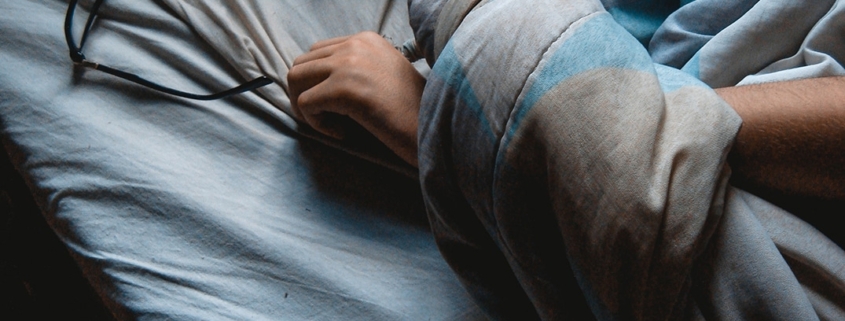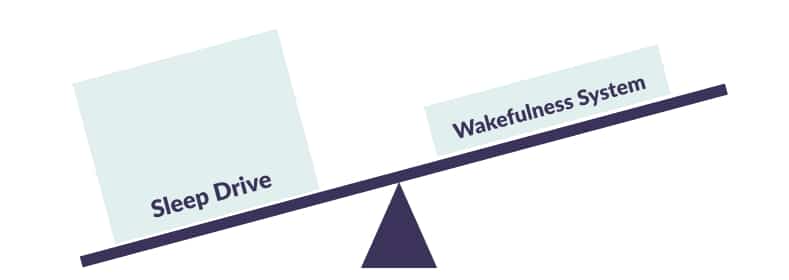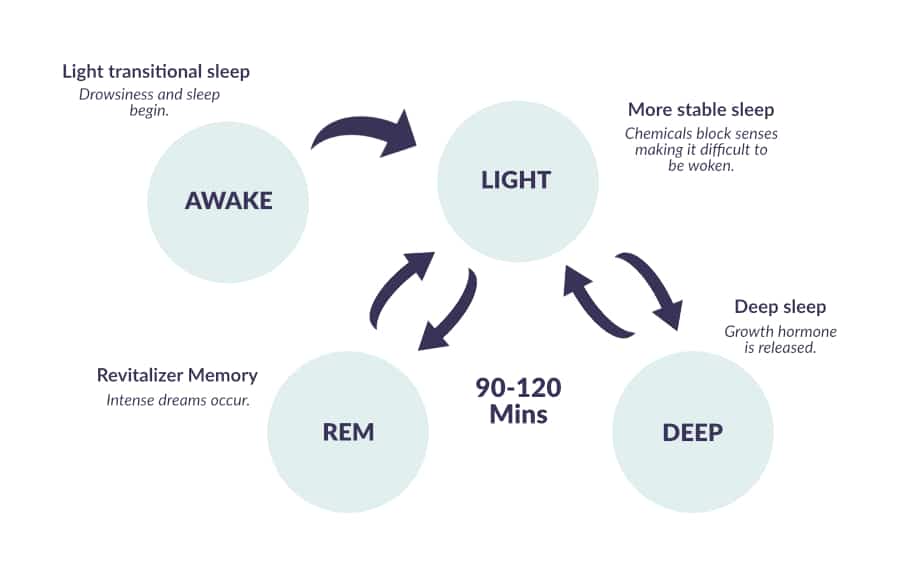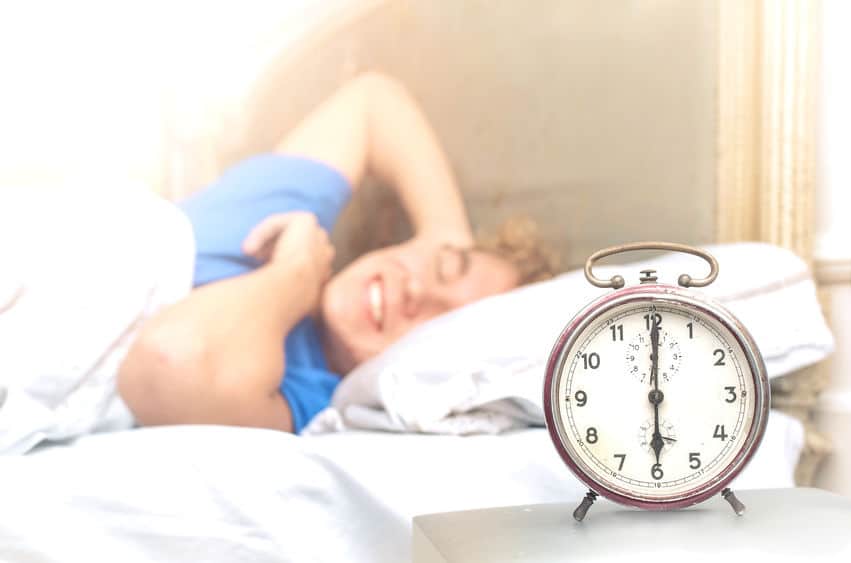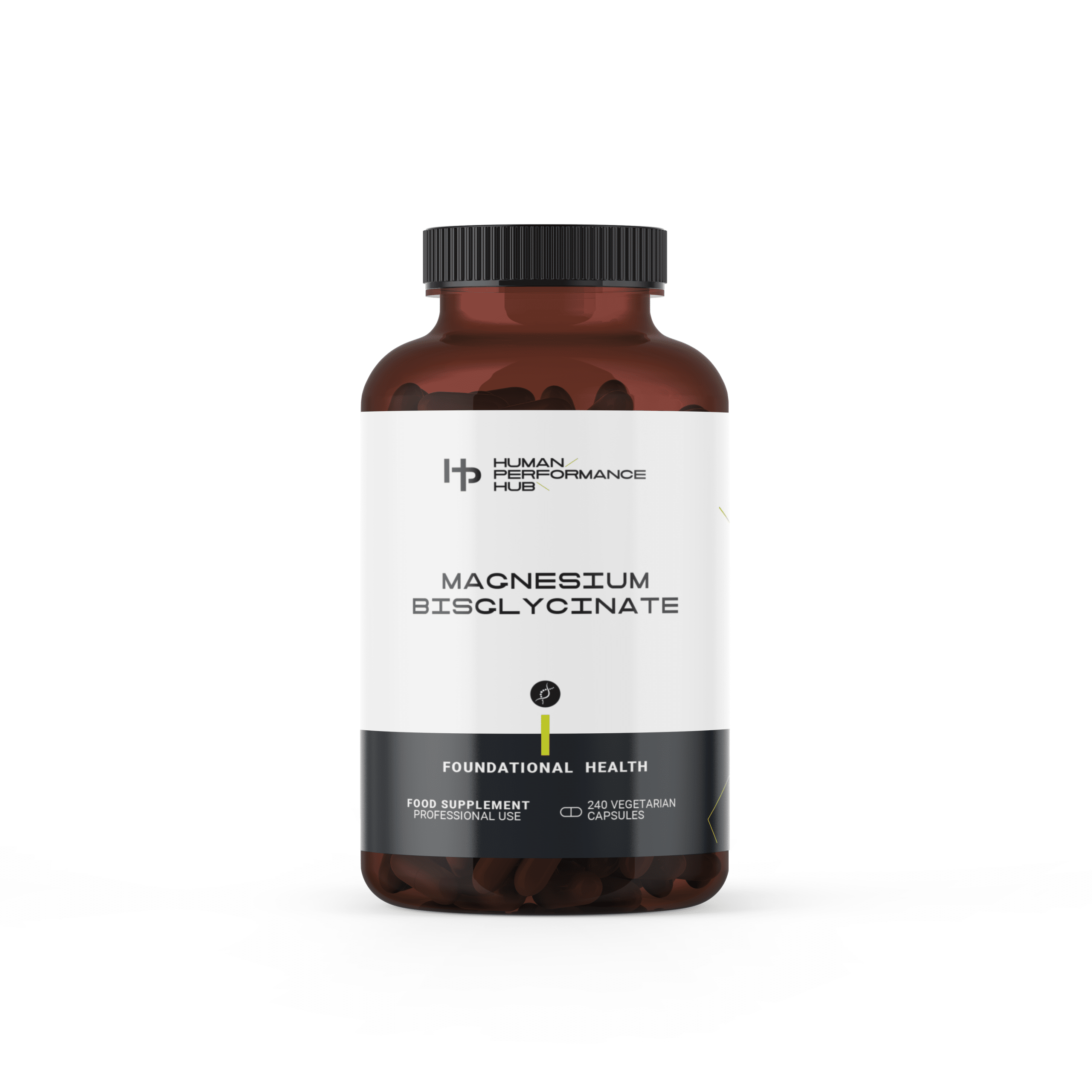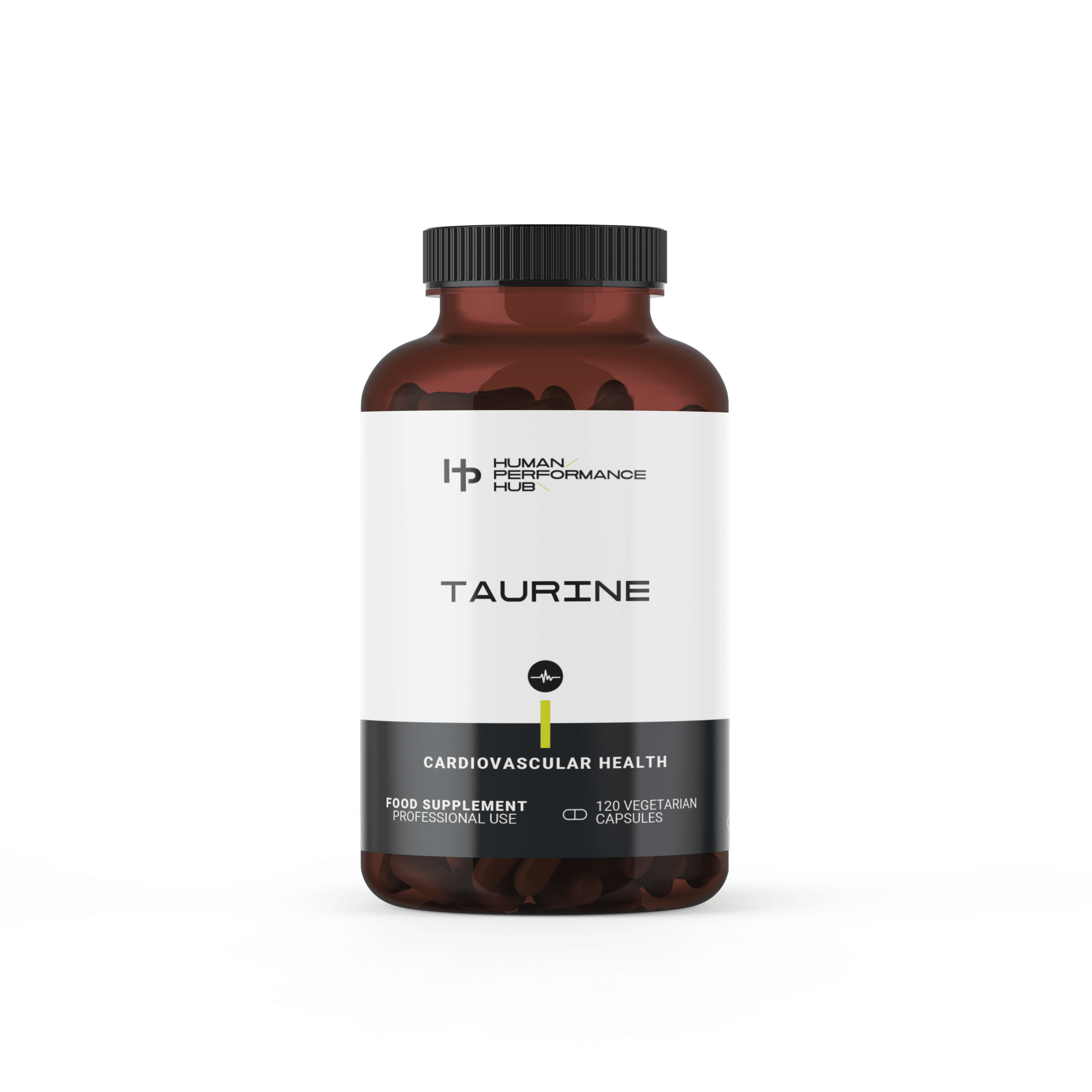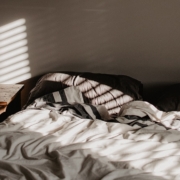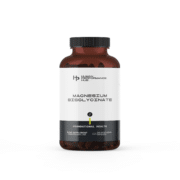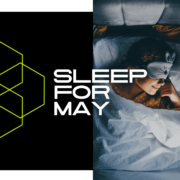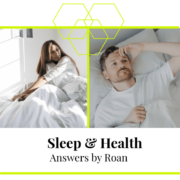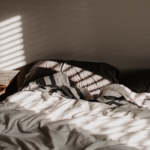Achieving good health and results depends on your sleep so let’s look at the science behind sleep and why it’s so important.
Even though we spend over half our lives sleeping, most of us are still in the dark about what sleep is.
We know for sure that sleep is vital to your good health.
That’s why sleep is one of the three things I work on with clients to achieve faster results in their personal lives and the gym. I’m not a doctor or a scientist, and I don’t own a white lab coat. What I do have is ‘in the trenches experience with real people achieving results through getting the basics right.
Sleep is the first thing I look into with my clients, with gut health and managing life stress close behind. Before nutrition and training, sleep is one of the most misunderstood elements of health we take for granted.
When I start working with a client and ask, “how’s your sleep?”, 80% of the time, the answer I get back is ‘FINE’. But what is FINE? It’s not until we work through sleep they realise having a dog in bed, watching Netflix on the iPad, and still digesting an after-dinner coffee could be some of the reasons that waking up in the morning feels like hell, with the added Smartphone alarm next to their head sending them into a panic-stress mode.
In this article, I want to inform you about sleep. It’s a massive topic that merits more than just a few articles addressing it. Only once you have the information will you be able to make better and wiser choices for your health.
“Education is not the learning of facts, but the training of the mind to think.” – Albert Einstein.
What is sleep?
It used to be the thinking that our bodies and minds were dormant during sleep. While the study of sleep is relatively new in the medical field, the science behind sleep shows that your body and brain are very busy at night. And we’re learning new things all the time.
According to leading sleep researcher William C. Dement M.D. PhD, the most significant cause of sleep issues is people’s ignorance about what sleep is. Without enough knowledge, you cannot identify problems to change the way you’re sleeping.
We know that sleep is not the absence of wakefulness, nor is it an on/off switch. Sleep is a state all by itself.
Many agents at work in your body affect how you sleep and wake up. Aside from lifestyle and environmental factors, various natural processes in your body govern your sleep, including your sleep-wake cycles, sleep phases, and your internal body clock.
Sleep-Wake Cycles
Humans have two cycles: Wakefulness and sleep, Daily energy and sleep energy.
Think of it as two systems in your body. Some processes drive your awake state; others promote your sleep drive. The two systems, wakefulness and sleep, accumulate over the day.
Wakefulness
In the Wakefulness cycle, your body produces chemicals like histamine, dopamine, and orexin that drive you to be awake.
Histamine promotes wakefulness and also affects your biological clock. Many sleep aids contain an antihistamine that can cross the blood-brain barrier to induce sleep. Digestion triggers the release of histamine, which is one reason why you should avoid eating late in the evening to promote better sleep.
Food intolerance and dysbiosis can also increase histamine in the gut, creating a chain reaction that will influence your sleep. I’ve found that clients with bad gut issues, 9 times out of 10, also have a restless sleep. You have to look at the bigger picture and address the intolerance causing the issue. I often recommend removing gluten, wheat, and barley from the diet because it could help to limit inflammation.
Dopamine is heavily involved in your Wakefulness state. Doctors commonly prescribe drugs that increase dopamine in the brain, like amphetamines and Ritalin, which increase wakefulness. Some diseases such as Parkinson’s are characterised by impaired dopamine levels and include symptoms of daytime sleepiness.
Orexin neurons in the brain promote wakefulness and suppress REM sleep. The lack of this hormone is related to the sleep disorder narcolepsy.
Sleep
Among other chemicals, melatonin and adenosine act as drivers that push you to sleep. Their levels in the body are lowest in the morning and increase later in the day.
Melatonin regulates sleep and tells your body when it’s time to head to bed. Many people use melatonin supplements to help induce sleep and battle jet lag effects. Melatonin is also essential to regulating your cortisol cycle, and some sleep problems are associated with excess cortisol in your body.
Adenosine accumulates in your brain as the day goes on, depressing the nervous system and many processes associated with wakefulness. The more adenosine in your brain, the more tired you are. Adenosine decreases when you sleep, so you have lower levels in the morning, allowing the body not to fight the wakefulness cycle.
Do you know why your morning cup of coffee perks you up? It’s because caffeine blocks the activity of adenosine.
Stages of sleep
What’s going on when you sleep? It might seem like nothing much is happening, but In fact, while you’re sleeping, your brain goes through many stages of activity that serve distinct purposes.
Light sleep begins at stage 1 and goes through each stage until reaching deeper sleep; then the cycle begins again. Each complete sleep cycle takes an average of 90 to 120 minutes.
- Stage 1 is a brief, light sleep that lasts about 5% of the night. Here you experience unconsciousness but with some form of consciousness. This means you’re semi-alert and can easily wake up. Stage 1 protects you before falling deeper asleep.
- Stage 2 lasts about 50% of the night. Like stage 1, stage 2 is relatively light but the brain waves increasingly slow down. If you have trouble falling into deep (stage 3) or REM sleep, Your light sleep will be too long.
- Stage 3 is a deeper sleep as your brain produces slower delta waves. This lasts about 25% of the night where the body repairs itself and builds up energy for the next day. If you feel rested, this is because this phase is going well. In the first part of the night, deep sleep is more prolonged than REM in the next stage. As you sleep longer, your deep sleep becomes shorter, and REM sleep becomes longer. Therefore the first part of the cycle is where you physical recuperate.
- REM (Rapid Eye Movement) sleep is when your brain becomes more active, and you dream. If you wake up later in the night halfway through your last REM sleep, you’re more likely to remember your dreams. Adults generally have 4 to 5 REM cycles each night, lasting about 20 to 40 minutes. REM sleep also affects the psychological part of the brain, making you more prone to depression if you don’t get enough.
While sleep cycles vary, you can only go from Light > Deep> Light> REM > Light > Deep> Light > REM. Deviations in these sleep cycles can result in several conditions. For example, going from an awake to a deep state can cause narcolepsy, or going from an awake state directly to REM can cause cataplexy (temporary body paralysis).
It’s important to note that sleep cycles vary for different life stages. Children enter deep sleep more easily and sleep deeper than adults. That’s because deep sleep is restorative, and children need more growth hormone for development. We excrete less growth hormone as we get older because we have less deep sleep.
What about napping?
Naps are excellent if your sleep is good, but they don’t compensate for lack of sleep. If your sleep is not great, it might be better to skip the nap and save it for when you sleep at night; otherwise, you won’t be fixing your sleep. But a short nap (20-30 minutes maximum) may benefit without leaving you feeling groggy or interfering with nighttime sleep.
Having a nap in the day may also help to reduce some health risks. A study of 23,681 healthy adults over 6 years found that those who nap at least 30 minutes 3 times a week or more have a 37% lower risk of coronary mortality than those who didn’t sleep during the day.
I recommend trying to schedule naps in your diary. We often take a nap when we’re so exhausted that it is hard to wake up after, and it’s best to nap before getting to that state. For example, if you get tired at 4 in the afternoon, take your nap between 1:30 and 2 pm.
Since your sleep environment can affect your ability to fall asleep, make sure you have a comfortable and quiet place to lie down. Prep yourself as if you were going to bed. Getting on your sleep mask will tell your body that rest is coming.
And don’t stress about sleeping while napping. Studies at Harvard University noted that there’s no difference if you sleep or just rest – your increased awareness will be better anyway!
Did you know?
Thomas Edison only slept 4 hours per night. But he was also huge on napping, combining his sleep/recovery to 8 hours or more.
What makes your body clock tick?
Circadian Rhythm
Circadian Rhythm (C.R.) is your body’s natural clock that runs about 24 hours and 11 minutes long. C.R. controls your wakefulness and individual clocks that manage functions in the body’s organs, so shifts in this clock can have harmful health effects. This means that any changes in sleep patterns can affect the body’s natural circadian rhythm, with consequences for your health.
The clock (Circadian Locomotor Output Cycles Kaput) gene regulates your 24-hour circadian rhythms, playing a significant role as an activator of downstream elements in the pathway critical to generating the circadian rhythms.
This gene secretes a protein that affects the brain, ovaries, kidneys, and many main organs. This indicates the importance of the body’s C.R. more than we ever thought. At a cellular level, an activity happens because of the C.R. cycle. It’s not fully understood why, but one theory could be that the cells are cleaning themselves.
Zeitgebers
You may have never heard of zeitgebers, but how you sleep depends greatly on this. Zeitgebers, German for “time givers”, are external or environmental cues that synchronise your body’s internal clock to the earth’s 24-hour light/dark cycle.
The biggest zeitgebers affecting your circadian rhythm and impacting your sleep cycles are:
- Sun/Light
- Exercise
- Time of meals
- Social intervention
- Temperature
- Sleep
While the foundation of a perfect day is adequate rest, most of us already start behind, and our busy lives upset the natural rhythms of our body clock. Getting closer to your natural rhythms with consistency and healthy routines can bring you a more perfect day.
Did you know?
Rats have more cycles in their C.R. per day than humans? Studies show rats have polygamous cycles, meaning they have many more cycles throughout the day – sleep, awake, sleep, awake, sleep, etc.…
Why is sleep so important?
There is absolutely no substitute for sleep.
You can train, eat well, take supplements, and gain some results with each charge you make. But if your sleep is not good and you don’t address this area, your results will be limited.
Statistics show that many people get less than the recommended sleep for optimum health. According to the Centers for Disease Control and Prevention, a whopping one-third of the American population sleep six or fewer hours a day. And the amount of people sleeping less has increased by about 31% in the last 25 years.
Ongoing sleep deficiency raises the risk of health problems: hypoglycemia, mental health, Alzheimer’s disease, cancer, and weight gain.
Sleep and hypoglycemia
When your blood sugar levels decrease below normal, it is hypoglycemia or low blood sugar.
Hypoglycemia can happen in the night, causing disturbed and restless sleep. The tools I use to address this so I can give my clients the desired amount of carbs are body fat percentage measurements and glucose monitoring.
Studies suggest that a reduction in total sleep duration is associated with insulin resistance, causing the body to produce more insulin to keep the blood sugar stable and increase the risk of type 2 diabetes.
Researchers found that after 4 nights in a row of bad sleep (for example, 4 hours per night), it took the body another 2 nights after a normal 8 hours of sleep for the insulin to come back down to normal levels. Think about the impact on the body over months/years of exposure!
Sleep and mental health
Broken sleep problems are possibly the worst thing for you. As well as putting you at risk of ventricular fibrillation, it can also cause mental health problems. For example, if you’re always going into deep sleep (with broken sleep), you will not be going into REM sleep, and your brain cannot recover properly.
Sleep problems can lead to depression. As a result, some doctors prescribe antidepressants. However, most sleep specialists don’t recommend this as antidepressants change neurotransmitters in the short and long term and don’t address what is causing the issue.
It’s much more important to sleep 4 hours all the way through the night than to sleep 8 hours with broken sleep. To make sure you go into Deep / REM sleep.
Sleep and cognition
Sleep helps your brain work properly and plays a vital role in how you learn and remember things.
Research shows that sleep deficiency alters activity in the brain, decreasing cognitive function. This can lead to memory and decision-making problems and affect your learning and problem-solving skills.
Sleep and Alzheimer’s disease
While the lymphatic system is responsible for collecting and circulating wastes in the body to eliminate them, the brain doesn’t have one. Instead, the brain has a lymphatic system whose main waste product is a protein called beta-amyloid.
According to a study at the National Institutes of Health, losing just one night of sleep led to an immediate increase in beta-amyloid, associated with Alzheimer’s disease.
So, the answer is sleep. Sleep lowers the impact of one of the genes to Alzheimer’s, delaying or reducing the risk of developing the illness…
Sleep and cancer
Researchers have linked the risk of breast cancer with decreased levels of melatonin, a sleep-promoting hormone in the body. They found that when levels of melatonin decrease, the body produces more estrogen, which is a known risk factor for breast cancer. On average, women don’t sleep as well as men…
People who work shifts outside of the typical day typically have more sleep disturbances. Much research has associated shift work with more significant health risks, including increased risk of cancer and cardiovascular disease…
The World Health Organization (WHO) classifies night shift workers as a Group 2a carcinogen, a substance capable of causing cancer in living tissue. The category is broken up into glyphosate, mercury, tetrafluoroethylene, and creosotes. Tetrafluoroethylene is used to make Teflon, used in non-stick frying pans and other cooking cookware!.
Sleep and weight gain
If you’re not sleeping well, you are more likely to gain weight.
Many studies have shown that lack of sleep is a direct risk factor for weight gain and obesity. Research has shown that adults who don’t get enough sleep are about 55% more prone to obesity. For children, the increased risks were a staggering 89%. And a reduction in one hour of sleep per day is associated with about 1.4 kg in additional weight.
There are several reasons linked to sleep and weight gain. Among them is evidence that sleep regulates your ‘hunger’ hormones and lack of sleep enhances the desire for food.
Fat loss comes down to…
- Diet, what goes through the mouth
- What happens outside of the gym
- SLEEP!
When to start worrying about your sleep?
While it’s possible to track how long you’re sleeping at night, it’s more difficult to determine your quality of sleep.
When you speak to a doctor about your sleep problems, what you tell them is the outcome you think you have. Your doctor doesn’t physically evaluate your sleep but depends on what you tell them. Your perception is one dimensional and not the actual outcome..
That’s because you can’t remember sleeping while you are sleeping.
So the problem could be your perception of sleep…
Insomnia/sleep issues are symptoms elevated as a condition. It’s not a total lack of sleep – but it is not a restful sleep!
It is not possible to be awake for 24 hours stat as you can sleep for 1 second, you can sleep for 10 seconds without you noticing it at all – it’s impossible not to sleep. It is a way to protect the brain.
If you’re unable to nap, could it be the same reason you have insomnia? They are symptoms of something going wrong!.
So, what’s the problem?
First, ask yourself these questions.
- Do you fall asleep within 15 minutes before 11 pm?
- Do you get uninterrupted sleep?
- Do you wake yourself up between 6 am, and 8 am with great energy?
- How do you assess the quantity and quality of your sleep?
When trouble starts
Although it’s unclear exactly how long you can survive without sleep, it isn’t long before the effects of sleep deprivation would appear.
While the exact amount of sleep needed by different people varies, research suggests that adults need between 7 to 9 hours of uninterrupted sleep each night. Sleep needs also vary across ages and are impacted by lifestyle and health.
However, there are common problems people have with sleep.
- Difficulty falling asleep
- Waking up during the night and having difficulty getting back to sleep
- Waking up tired or exhausted
- Irritable, anxious or depressed during the day
- Moving a lot while sleeping
If you experience any of these symptoms, you have a sleeping problem.
Consider the following when assessing your sleep.
What time do you go to bed? There’s no one-size-fits-all schedule, but the best approach is to match your sleep times to your own rhythms and regularly get the 7 to 9 hours of sleep. Some sleep experts advise getting into bed between 8 pm to 12 pm to get adequate restorative and dream-rich sleep. However, once you find what works best, keep it consistent with maintaining your body’s internal clock.
How quickly do you fall asleep? This depends on your biorhythm being right and how your body manages the production of the hormone melatonin.
Do you wake up in the night? If you can’t fall asleep, this may be due to your cortisol being too high. Your bladder can hold 1.5 litres, so you should not have to wake up to go to the bathroom.
How do you wake up in the morning? Lots of energy, no energy? For instants having low energy could be caused by having a lack of deep sleep or low cortisol level, or both.
Does sleep bother you? Do you think it’s an issue? What is your perception of sleep? If you don’t see sleep as an issue or problem, it’s generally easier to fix. However, if you think sleep is a problem, you may stress about sleeping, which impairs your capacity to fall asleep.
An interesting study was done on people who thought they slept well and weren’t tired during the day; in other words, they believed they had an optimal sleep. However, after 8 hours of controlled sleep, researchers found that 80% of the participants had a non-optimal sleep: 1 out of 4 had pathological fatigue (falling asleep within 5 minutes and moving into a deep sleep) and significant sleep debts, and 1 out of 5 was proposed as a danger for themselves or others. Only 10% had an optimal sleep.
Half the people in the study perceived their sleep to be bad, the other half perceived it to be optimal – but neither is right! This suggests that one’s perception of sleep is not necessarily the true outcome.
Insomnia is a symptom to a condition, not the condition itself. It’s possible to learn to be better with sleep and resting.
What is sleep debt?
If your perfect sleep is 8 hours and you only sleep 6 hours a night, you are acclimating a sleep debt of 2 hours per night. From the studies, the body adapts precisely the debit of the last two weeks. Therefore in this example, you would acclimate 14 hours of sleep debt.
There is a direct relationship between mental performance and the size of your sleep debt.
Paying your debt is the best way to increase your energy. Temporary measures would be to increase your sleep during the weekend. But keep in mind doing it for it a long time will mess around with your C.R.
Causes of sleep issues/insomnia
There are several factors that can affect the quality of your sleep.
Sleep Apnea
Apnea affects your breathing when you sleep. If you don’t breathe you’ll die, so your body wakes you up before this happens. This makes it hard to go into a deep sleep, making REM sleep impossible. Signs of sleep apnea would be waking up with a headache and frequently waking up (this includes getting up to have a pee).
*Note: Children should be examined if this is an ongoing case. These stages are important as children need deep sleep to produce growth hormone for proper development.
Restless Legs Syndrome (RLS)
Also known as Willis-Ekbom disease, is a condition that causes an irresistible urge to move the legs to stop uncomfortable or odd sensations. RLS can also affect the arms, torso, head, and other parts of the body. RLS is considered a sleep disorder as it usually interferes with sleep. If you’re moving too much, you’re not having a restful sleep.
Narcolepsy
Asleep disorder that is more common than you would think. Narcolepsy affects 50% of women and is 5 times more common than leukaemia. Signs of narcolepsy are being excessively tired during the day, and can also show as more fragmented sleep patterns and waking several times during the night. REM sleep may occur much earlier than normal after falling asleep and the effects of REM sleep, such as dreaming and paralysis, may happen while you’re still conscious.
Alcohol
In excess, alcohol increases amnesia, snoring, apnea, and awakeness. While the sedative effect of alcohol increases deep sleep, it affects the REM state and, consequently, the brain’s recovery. Also, if you’re sleep-deprived, the effects of alcohol increase, making you more drowsy.
Sleep deprivation
For whatever reason, sleep deprivation can have dire consequences, as previously discussed. When your sleep deprivation is high you will be easier pronto fall asleep while driving.
Important fact: When your eyelids are trying to close, you already have experienced some microsleep (1-6 sec), it’s usually a matter of seconds before you fall asleep because closing the eye is the last step before sleeping.
Words of advice: pull the car over and take a nap if you are driving. Consider that more teenagers kill themselves in car accidents because of fatigue than alcohol!
Unfortunately, parents are not great with their circadian rhythm, so they cannot explain the importance of sleep to their kids. Although parents set children up with a sleep routine when they are young because they know sleep is essential for their growth and development, only 5% of parents tell their teenagers when it’s time to go to bed.
Moving forward
One of the best things you can do for your health and well-being is sleep better. Ensuring you get uninterrupted sleep each night can make a difference in your energy moods and prevent illness and serious diseases.
However, the worst thing you can do is stress about your sleep. Sleep is one of the most important things, but one night’s sleep is relatively insignificant. You sleep 240,000 hours in your life. If you miss 8 hours, don’t give yourself a hard time! Take the pressure off – breathe – it’s going to be ok!
In the second part of this sleep series, I’ll talk about my key strategies and supplement recommendations to help you get better sleep and pave the way to improved health and results.
All the information that I’ve learned and that has helped me write this article and help my clients achieve their results has come from mentors that I’ve had over the years. I am deeply grateful to Wolfgang Unsold and Christian Maurice for sharing their knowledge on sleep and achieving better energy.
Partners in health
Human Performance Hub stocks a range of vitamins and minerals to help sleep-promoting.
Helps to lower cortisol and supports the liver. This is suited to use for sleep and relaxation.
Glycine is an amino acid and neurotransmitter that has numerous positive effects on the body. Getting enough glycine may help sleep, mood, detoxification, brain health, blood sugar control, digestion and even longevity.
supports healthy blood pressure and nerve function, normal skeletal muscle function and insulin sensitivity, proper digestion of fats, good cardiovascular health, antioxidant defence, and more.
We’re always here to help. If you have any questions or would like advice about supplements, nutrition, or training, please book in for a consultation.
Disclaimer
Always speak with your physician or another healthcare professional before making any nutritional & lifestyle changes or before taking any nutritional supplement. For more information, please view our terms & conditions.
Further reading
- How to sleep your way to better health
- The Brain Chemicals that Boost Sleep and Recovery
- Essential Tools for Recovery
- Sleep & Recovery
References
- https://www.scientificamerican.com/article/q-a-why-is-blue-light-before-bedtime-bad-for-sleep
- Shokri-Kojori E, et al. (2018). β-Amyloid accumulation in the human brain after one night of sleep deprivation. Proceedings of the National Academy of Sciences.
- Cappuccio FP, Taggart FM, Kandala N-B, et al. Meta-Analysis of Short Sleep Duration and Obesity in Children and Adults. Sleep. 2008;31(5):619-626.
- Crispim CA, Zimberg IZ, dos Reis BG, Diniz RM, Tufik S, de Mello MT. Relationship between food intake and sleep pattern in healthy individuals. J Clin Sleep Med. 2011 Dec 15;7(6):659-64. doi: 10.5664/jcsm.1476.
- Dashti HS, Scheer FA, Jacques PF, Lamon-Fava S, Ordovás JM. Short sleep duration and dietary intake: epidemiologic evidence, mechanisms, and health implications. Adv Nutr. 2015 Nov 13;6(6):648-59. doi: 10.3945/an.115.008623. Print 2015 Nov.
- Di Milia L, Vandelanotte C, Duncan MJ. The association between short sleep and obesity after controlling for demographic, lifestyle, work and health-related factors. Sleep Med. 2013 Apr;14(4):319-23. doi: 10.1016/j.sleep.2012.12.007. Epub 2013 Feb 16.
- Brown, R. E., Basheer, R., McKenna, J. T., Strecker, R. E., & McCarley, R. W. (2012). Control of sleep and wakefulness. Physiological Reviews, 92(3), 1087-187.
- Lucassen EA, Rother KI, Cizza G. Interacting epidemics? Sleep curtailment, insulin resistance, and obesity. Ann N Y Acad Sci. 2012 Aug;1264:110-34. doi: 10.1111/j.1749-6632.2012.06655.x. Epub 2012 Jul 24.
- Markwald RR, Melanson EL, Smith MR, et al. Impact of insufficient sleep on total daily energy expenditure, food intake, and weight gain. Proceedings of the National Academy of Sciences of the United States of America. 2013;110(14):5695-5700. doi:10.1073/pnas.1216951110.
- McHill AW, Wright KP Jr. Role of sleep and circadian disruption on energy expenditure and in metabolic predisposition to human obesity and metabolic disease. Obes Rev. 2017 Feb;18 Suppl 1:15-24. doi: 10.1111/obr.12503.
- Patel SR, Hu FB. Short sleep duration and weight gain: a systematic review. Obesity (Silver Spring). 2008 Mar;16(3):643-53. doi: 10.1038/oby.2007.118. Epub 2008 Jan 17.
- Shlisky JD, Hartman TJ, Kris-Etherton PM, Rogers CJ, Sharkey NA, Nickols-Richardson SM. Partial sleep deprivation and energy balance in adults: an emerging issue for consideration by dietetics practitioners. J Acad Nutr Diet. 2012 Nov;112(11):1785-97. doi: 10.1016/j.jand.2012.07.032.
- Taheri S, Lin L, Austin D, Young T, Mignot E. Short sleep duration is associated with reduced leptin, elevated ghrelin, and increased body mass index. PLoS Med. 2004 Dec;1(3):e62. Epub 2004 Dec 7.
- Claudia Torres-Farfan, Hans G. Richter, Pedro Rojas-García, Marcela Vergara, María L. Forcelledo, Luis E. Valladares, Fernando Torrealba, Guillermo J. Valenzuela, María Serón-Ferré; mt1 Melatonin Receptor in the Primate Adrenal Gland: Inhibition of Adrenocorticotropin-Stimulated Cortisol Production by Melatonin, The Journal of Clinical Endocrinology & Metabolism, Volume 88, Issue 1, 1 January 2003, Pages 450–458.
- Ruth C. Travis, Diane S. Allen, Ian S. Fentiman, Timothy J. Key; Melatonin and Breast Cancer: A Prospective Study, JNCI: Journal of the National Cancer Institute, Volume 96, Issue 6, 17 March 2004, Pages 475–482.

